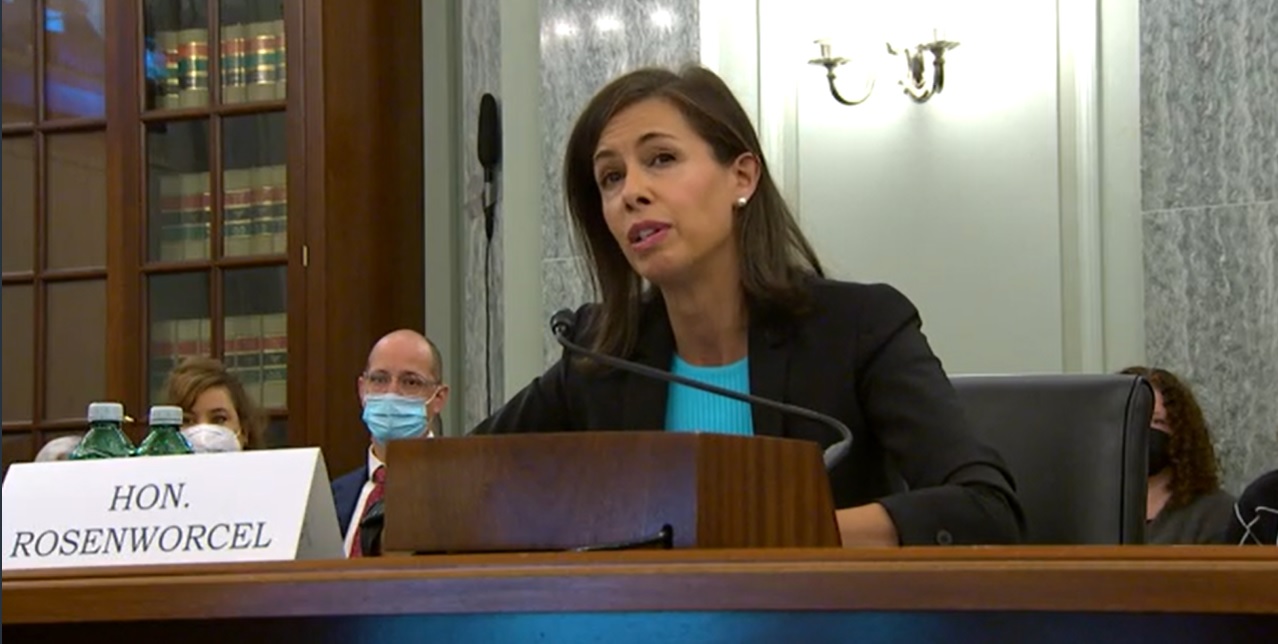FCC Tries, Tries Again With Foreign Programming ID
Agency says new proposal should pass muster with court

The smarter way to stay on top of broadcasting and cable industry. Sign up below
You are now subscribed
Your newsletter sign-up was successful
The Federal Communications Commission has proposed new ways it said will make sure broadcasters identify any content funded by a foreign government entity while ensuring it complies with a court decision that found the agency did not have the authority to mandate its previous effort at identifying such paid programming.
The FCC on Thursday (October 6) released a second notice of proposed rulemaking (NPRM) it said “strengthens the process for identifying foreign governmental entities in the wake of the [U.S. Court of Appeals for the D.C. Circuit’s] ruling in National Association of Broadcasters (NAB) v. FCC.” The proposal does not include a check of government databases, at least not by broadcasters. It is only a proposal, so the FCC will seek comments before voting on a final order.
The FCC’s second try was necessary because the D.C. Circuit in July found the regulator did not have the authority to require broadcasters to check two federal databases of foreign government entities to make sure the paid programmer is not on them. The NAB had challenged the requirement.
Concerned about China and Russia secretly leasing airtime to broadcast propaganda, the FCC had voted unanimously to toughen the disclosure requirement, including by mandating the check of government sources.
The court concluded the statute limited them to requiring broadcasters to exercise “reasonable diligence” in getting information from employees and sponsors, while the FCC extended that to government sources, something that broadcasters argued and the court agreed "is not in the law Congress wrote.”
Broadcasters must still make good-faith efforts to identify foreign-sponsored programming, just not according to that new, specific FCC mandate the commission has just modified to try and meet court muster.
In challenging the double-verification requirement, the NAB had said broadcasters’ duty to find out who pays for programming is confined to conducting due diligence to find out from those it deals with directly at the source. That is because a previous court had already ruled that statutory language imposes no burden of “independent investigation” by licensees.
The smarter way to stay on top of broadcasting and cable industry. Sign up below
One of the fixes the FCC is now floating is making those that lease the programming ensure they are not in those databases.
Another proposed FCC adjustment to the foreign programming ID requirement is to create a certification process with standard language that it says will demonstrate that broadcasters have done their due dilligence to determine whether a foreign governmental entity has sponsored a program.
“The principle that the public has a right to know the identity of those who use our airwaves to solicit our support is a long-standing tenet of broadcasting and I continue to stand by that,” FCC chair Jessica Rosenworcel said in a statement. “This proposal will help strengthen the process for identifying foreign governments broadcasting in the United States and fill in the gaps left in the wake of the D.C. Circuit’s recent ruling. The bottom line is that this is about supporting transparency and democratic values — full stop.”
The new FCC proposal fills in the gaps, it argues, by:
- Proposing that a broadcaster must certify that it has informed its lessee of the foreign sponsorship identification rules and obtained, or sought to obtain, a certification from its lessee stating whether the lessee is or is not a “foreign governmental entity;”
- Proposing that “a lessee must submit a certification in response to a broadcaster’s request;”
- Proposing to incorporate standardized certification into FCC rules;
- Offering an alternative certification requirement under which the lessee has the obligation to check the two federal government sources the FCC is disallowed by the court from requiring the broadcaster to check.
The FCC’s second NPRM also seeks input on a petition regarding how to distinguish between advertising and programming leased airtime arrangements and whether the FCC should consider any short-form programming under 2 minutes long to be advertising exempt from the foreign sponsorship-ID rules.
“We look forward to working with the FCC to clarify some of its rules to ensure that broadcasters are airing the correct identifications,” NAB senior communications strategist Alex Siciliano said. “As NAB has made clear from the beginning, we share the commission’s goal of ensuring that the public understands when it is watching or listening to foreign propaganda.” ▪️
Contributing editor John Eggerton has been an editor and/or writer on media regulation, legislation and policy for over four decades, including covering the FCC, FTC, Congress, the major media trade associations, and the federal courts. In addition to Multichannel News and Broadcasting + Cable, his work has appeared in Radio World, TV Technology, TV Fax, This Week in Consumer Electronics, Variety and the Encyclopedia Britannica.

